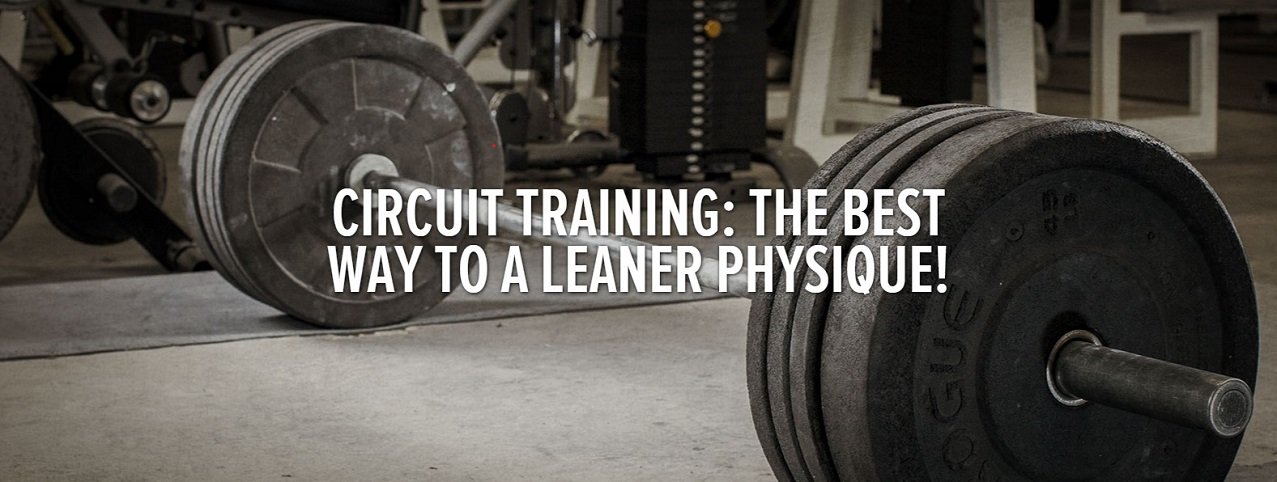Feel like you can’t seem to lose those last couple of pounds? If your workouts are hard enough but still can’t seem to improve your physique, circuit training is just what you need.
Circuit Training: Intensity & Weight Training
With the intensity of weight training, you’ll reap the benefits of added lean muscle mass and a large EPOC (your calorie burning will continue even after you’ve finished working out), with short bursts of aerobic work and you’ll be able to strengthen your muscles and your heart in a shorter time. These types of workouts are excellent for people trying to fit a workout during the lunch break or who are pressed for time and looking for something quick.
With the weight training portion of this working, you still want to lift like you normally would in a program, with a heavy enough weight to fatigue the muscles in 8-12 reps. Many circuit training programs employ the principle of doing an exercise for one minute and then moving onto the next. While this can be beneficial, I feel you will benefit more if you use a heavier weight that will fatigue you within those 12 reps, even if it only takes you 30 seconds.
Then, after performing that exercise, immediately (or if you really need a break, after about 15-30 seconds of rest) move into an exercise that works your abs or core (such as sit-ups on a stability ball) and perform 20-30 reps of those. This will keep your body moving, which will keep your heart rate up and allow you to keep burning calories while giving the body part you just worked a chance to rest before your next set.
Ball Crunches
After performing these, move onto another set of the same exercise you did first. Again, perform 8-12 reps until failure. If you find you are able to do more than 15 reps, you most likely either have to add more weight or recheck your form. After performing this set, move onto a cardio interval and perform 1-3 minutes of a high-intensity form of cardio.
Good choices would be jumping rope, doing a running sprint, walking on a high-grade incline (treadmill), or biking at a fast pace/high level. Just make sure to get your heart rate up and are working at a level that feels challenging enough. Next, perform a final set of your first exercise (the primary one we are focusing on). This would make one mini-circuit.
Switch Things Up For Muscle Growth
Depending on what kind of a program you are on and what your goals are, you could choose to then move on to another body part and choose one exercise for it and go through the process again, performing one set, then a core exercise, then another set, followed by a cardio interval, and finishing up with another set. You can choose different types of core exercises as well.
For example, you can do sit-ups on the ball, hold the plank position for 30-60 seconds, do back hyperextensions, or perform other variations on sit-ups. The main focus here is to give the muscles you just worked a rest period but still keep moving. You can and probably should vary the type of cardio intervals you perform as well. By constantly changing the stimulus, you will be forcing your body to continue to adapt and grow stronger.
Hyperextensions
Another option, if you are more advanced with strength training, would be to perform a split routine rather than a full-body routine. Here you would have a few more options on what you might do. After the first mini circuit training was finished, you could move on to another exercise for the same body part.
For example, if you were working chest, you might first perform barbell chest presses for the first three sets, then move onto incline dumbbell chest presses for the next three sets. Another option, if you are working two or more muscle groups during the workout, would be to perform the next muscle group and alternate between them.
So, if you were working biceps and triceps, for example, you could do the first three sets as dumbbell curls, then the next three sets as overhead tricep extensions. This would give the first muscles an extended chance to rest while you were working the second body part. Then once you have finished triceps, you could go back to biceps once again.
It is important to remember that because this is a circuit training style, the intensity level is going to be higher than if you were just performing an exercise followed by a rest period, followed by another set, and so on. Therefore, you may have to reduce the length of your workout (for example, if you used to perform four exercises for chest with four sets per exercise, this may be too much for this type of workout), and you may need to reduce the volume.
Have You Ever Tried Circuit Training?
As with any other workout program, it’s important to change the exercises you are doing every 4-6 weeks to prevent the body from adapting. Also, try and increase either the weight you are lifting or the number of sets you are doing each workout to apply the concept of progressive overload.
Be sure to add recovery weeks in your training where you reduce the volume and weight you are lifting or just take a complete week off. This will allow you to completely recover and grow stronger and prevent the possibility of overtraining.
Conclusion
Lastly, I want to add that this program is not designed to put on a great deal of muscle mass. It is more targeted towards decreasing your body fat levels while keeping the strength you have. If you want to speed up the process of leaning down, it would be wise to ensure your diet is optimal and perform a couple of additional cardio sessions along with your circuit training.





